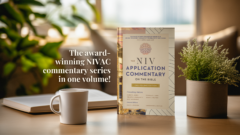If you were one of the four million people to read the bestselling book Freakonomics, you will pretty well know what to expect from the long-awaited sequel SuperFreakonomics. It has five chapters, each of which stands on its own and each of which ties varied economic data into some kind of a cohesive whole. It is just as interesting as its predecessor and sticks very closely to the formula that made the first book such an unlikely hit.
The first chapter is titled “How Is a Street Prostitute Like a Department-Store Santa?” and this chapter is a lengthy look at the economics of prostitution. The authors draw out all kinds of interesting conclusions about prostitution and especially about how prostitution has changed over the years. For example, they show that the wages for prostitutes have fallen drastically over the past hundred years. The reason is pure economics and goes back to the law of competition. “Who poses the greatest competition to a prostitute? Simple: any woman who is willing to have sex with a man for free. It is no secret that sexual mores have evolved substantially in recent decades. The phrase ‘casual sex’ didn’t exist a century ago (to say nothing of ‘friends with benefits’). Sex outside of marriage was much harder to come by and carried significantly higher penalties than it does today.” In other words, in decades past women held closely to their virginity and were unlikely to give it away to anyone but their husbands. Today a man has, in the words of the authors, “a much greater supply of unpaid sex.” According to the laws of supply and demand, prices must then fall. In our generation only 5% of men lose their virginity to a prostitute; in days past it ran as high as 20%. Today more than 70% of men have sex before marriage; in days past it was just 33%. Premarital sex has proven a free substitute for prostitution. Once the domain of the professional (at one time one in every fifty American women in their twenties was a prostitute!) premarital sex is now the realm of any woman. This has driven down wages through a strange but sad kind of free market force. I guess this gives us something to think about the next time we hear about the falling levels of prostitution. Though we rejoice when prostitutes find another line of work, it does not necessarily mean that we have cured one of society’s ills. It may point to changing market forces based in turn on declining morality.
There was something else in this chapter that gave me a lot to think about. In their research the authors found that certain sexual acts have always commanded a premium; some are more costly than others. That is no surprise. Acts that are taboo in society are going to cost more than acts that are considered “normal.” What is interesting, though, is to see that this is a moving standard. As society has become increasingly sexualized, acts that were once taboo are now considered bland or boring. What once commanded a premium is now considered barely worth thinking about. This got me thinking about sin and about the very nature of sin. Have you ever had one of those moments where you found that sin was suddenly taking charge of you? If you think about it I’m sure you can come up with a moment when you realized that it was no longer you who was in charge, but sin. Sin had taken over; sin was taking the lead and you were just following along. It is a terrifying place to be! Sin always wants more, always demands more. It is progressive, beginning with something small but always demanding more and greater. Give it an inch and it will take a mile. The economics of prostitution shows the progressive nature of sin. Just in a brief look at rates and wages we can see how society has changed as women have become more willing to give their bodies away and as the vulgar and invasive and degrading has become mainstream.
This book illustrates why I love reading and why I always seek to read widely. I rarely regret reading Christian books and have benefited from such books immeasurably. But I would be impoverishing myself, I think, if I were to read only Christian books. Here in a book that is not in any way “Christian” I found all sorts of interesting facts, interesting ideas, that I can grapple with. They are issues that I can think about within my Christian worldview and use them to uncover great truths about people and about the God who created them.










